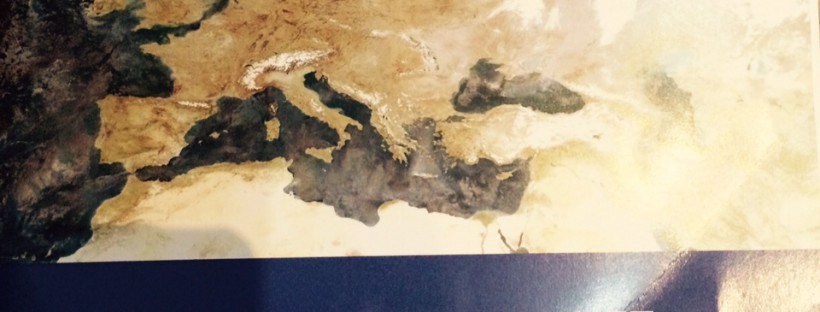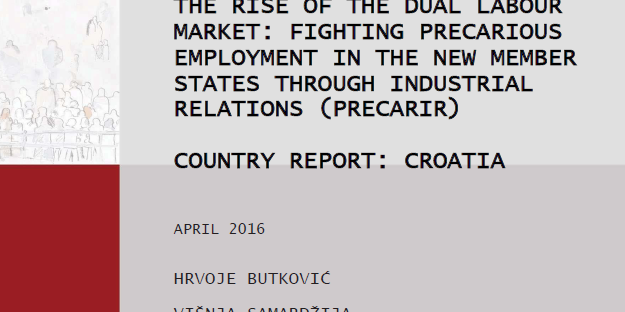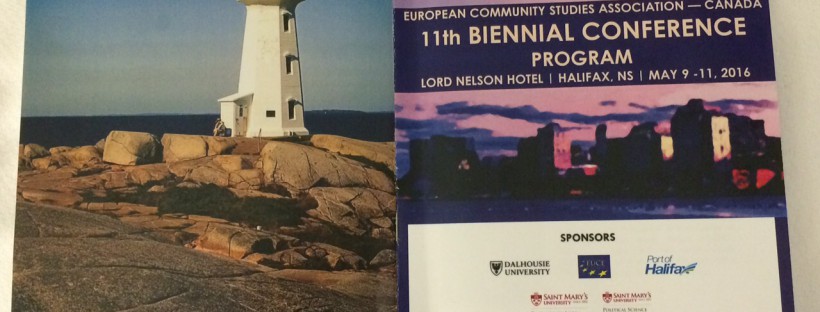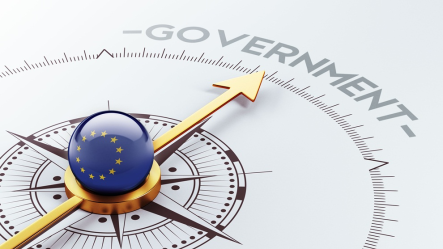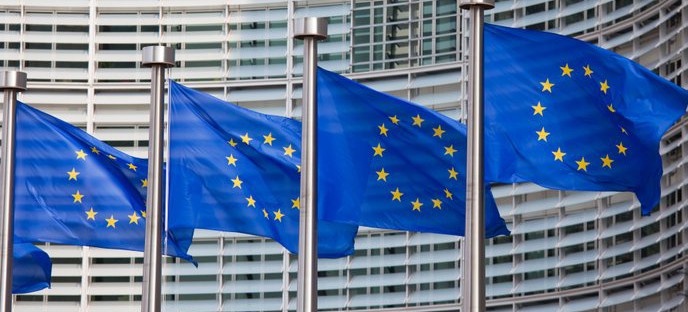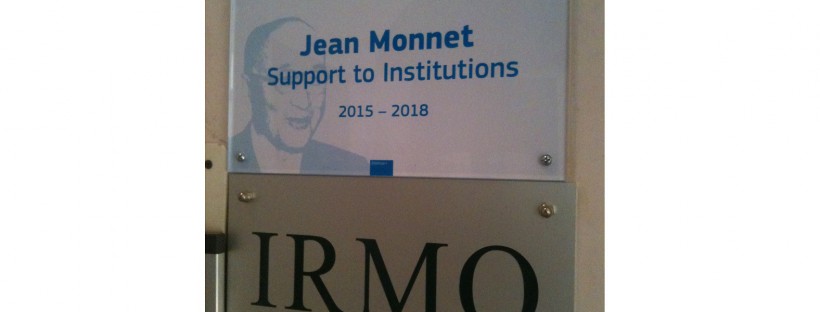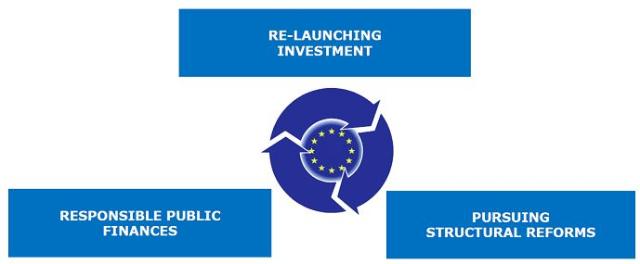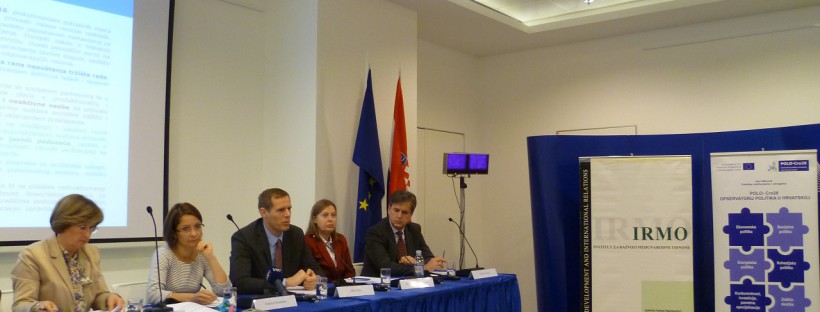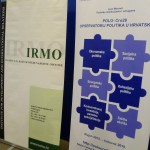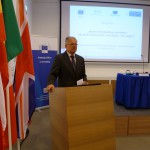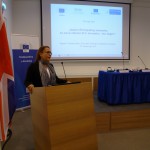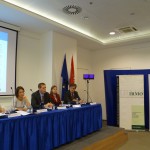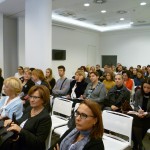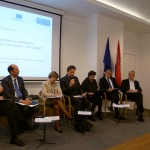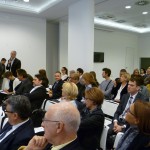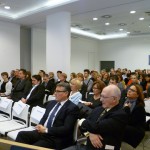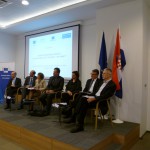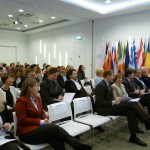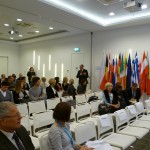Dr Višnja Samardžija took part in the Jean Monnet Seminar “European Union ‘à la carte” which took part from 19-21 June in in Malmö, Sweden. The participants had the opportunity to discuss different aspects of differentiated integration within three panels – the Fiscal and Monetary Union, the Energy Union and the Common Security and Defence.
Category: news
The IRMO study on the nonstandard work in Croatia published
The team of IRMO researchers (Hrvoje Butković and Višnja Samardžija in cooperation with Ivana Skazlić and Ivana Čavar) has published a study about the nonstandard work in Croatia in the period since outbreak of the economic crisis. The study is focused on the activities of the trade unions and employers related to increase of the nonstandard work in the sectors of construction, metal industry, retail trade, public healthcare and agency work. The study, among other topics, addresses the issue of youth unemployment which in Croatia is one of the highest in the EU. The youth were identified as particularly vulnerable group because crisis further complicated their entrance to the labour market, while they are mostly employed on fixed-term contracts. The research was implemented within the project ‛PRECARIR – The rise of the dual labour market: fighting precarious employment in the new member states through industrial relations’ financed by the European Commission. IRMO implements this project as a partner from Croatia while it is coordinated by the Dublin City University (DCU). Together with nine other national studies it was published as a CELSI Research Report at the webpage of the CELSI institute from Bratislava.
More information:
The study is available in the electronic form.
Višnja Samardžija participated at the biennial ECSA-C conference The European Union and North America: an inevitable partnership?
Halifax, Canada
May 9-11, 2016
The Head of Department for European integration Visnja Samardzija participated at the conference The European Union and North America: an inevitable partnership?, taking place in Halifax, May 9-11 2016. The European Community Studies Association – Canada (ECSA-C) organizes international research conference that is held every two years and co-funded by the Erasmus+ programme of the European Union. ECSA-C’s mission is to help promote the study of the European Union and its Member States in Canada. Visnja Samardzija presented a research paper Comparing the Economic Governance in the New EU Member States – is the European Semester a Success or Failure? at the fourth session entitled Economic Policy and Transatlantic Relations. The paper is prepared in co-authorship with Ivana Skazlic from IRMO and is resulting from the project “Policy Observatory in Croatia (POLO-Cro28)” funded by the European Commission through the ERASMUS + programme, Jean Monnet Support to Institutions.
The National Reform Program and the Convergence Program for 2016-2019 adopted
The Croatian Government has adopted the 2016-2019 National Reform Program and Convergence Program on 28th April 2016, drafted within the process of the European Semester. The National Reform Program identifies 4 main goals and reform areas for 2016 and 2017, including: macroeconomic stability and fiscal sustainability; improved conditions for business and better investment climate; increased efficiency and transparency of the public sector as well as better alignment between education system and the needs of the labor market. The Government intends to achieve these goals by implementing a total of 61 reform measures. The Convergence Program indicates further continuation of fiscal consolidation in the following medium-term period. Based on the assessment of these documents, the European Commission will decide whether to initiate Excessive Imbalance Procedure for Croatia but also it will use them for preparation of the new set of Country Specific Recommendations for Croatia.
More information:
http://ec.europa.eu/europe2020/pdf/csr2016/nrp2016_croatia_en.pdf
A meeting of the IRMO project team for the implementation of ‘POLO-Cro28 – Policy Observatory in Croatia’ was held
A meeting of the ‘POLO-Cro28 – Policy Observatory in Croatia’ IRMO project team was held on Thursday 15th April 2016 in the IRMO library. The project was awarded to the IRMO under the Erasmus+ program. The IRMO research team has reviewed and discussed the first eight months of the project implementation and it has also agreed on the activities for the following period of project implementation. In accordance with the planned project activities of the project ‘POLO-Cro28 – Policy Observatory in Croatia’, the following activities were implemented so far: Kick-off meeting was held, 4 analytical commentaries by young IRMO researches have been published, one round table discussion has been organized at the European Commission Representation in Zagreb, the project’s website has been established and soon the first policy paper by IRMO researches will be published.
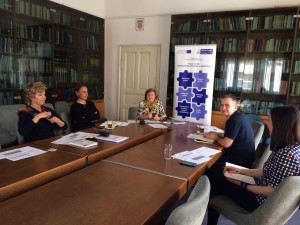
The EC Published a Report on Macroeconomic Imbalances for Croatia
On 26th February 2016 the European Commission has published 2016 Country Report for Croatia including an In-Depth Review on the prevention and correction of macroeconomic imbalances. This Report is a result of the Alert Mechanism Report (AMR) of November 2016, which kicks-off the annual Macroeconomic Imbalance Procedure (IMP). The AMR is an early-warning mechanism for identification of the member states with a potential risk of harmful macroeconomic imbalances. The fifth AMR of November 2016 identified a total of 18 member states, including Croatia, for which a closer analysis (in-depth review) is deemed necessary.
The 2016 In-Depth Review (IDR) for Croatia provides a detailed analysis of the key economic issues and challenges facing the Croatian economy. Moreover, the IDR contains summary assessment of Croatia’s implementation of the 2015 country specific recommendations (CSRs). According to the IDR, Croatia has made some progress in addressing only 1 CSR, while it has made a limited progress in addressing other 5 CSRs. The IDR also provides progress assessment regarding the achievements of national Europe 2020 targets.
More information available on: http://ec.europa.eu/europe2020/pdf/csr2016/cr2016_croatia_en.pdf
The European Commission forecasts for 2016 continued growth in Croatia
On 4th February 2016, the European Commission has announced the Winter 2016 Economic Forecast with updated growth projections for the European Union and its member states. According to the Commission’s winter forecast, growth in the euro area is projected to increase to 1.7% in 2016 (from 1.6% last year), and to rise to 1.9% in 2017. In 2016 EU economic growth is forecast to remain stable at 1.9% and is expected to grow to 2.0% next year. According to the Commission’s projections, the economic growth in Croatia is expected to grow by 1.8% in 2015, and is projected to increase to 2,1% in 2016 and 2017. The basis for these projections lies within further acceleration of the domestic demand, as the main driver of growth. This, coupled with improving labour market conditions which will contribute to increasing household spending as well as speeding up of the investments due to improved absorption of EU funds, contributed to overall growth expectations by 2.1% in next two years.
More information: http://ec.europa.eu/economy_finance/eu/forecasts/2016_winter_forecast_en.htm
Jean Monnet Plaque awarded to IRMO
By 2018, the plaque for Jean Monnet Support to Institution awarded to IRMO by the Education, Audiovisual and Culture Executive Agency (EACEA) will be placed at the entrance of Institute. The Agency explains that purpose of this plaque is twofold. It serves primarily as a label signifying quality in European integration studies and represents the achievements of IRMO’s Support to Institution in this field. At the same time it also provides visibility for the Jean Monnet Action, presenting it as the focal point within and outside IRMO for the promotion of European issues.
2016 ANNUAL GROWTH SURVEY: STRENGTHENING THE RECOVERY AND FOSTERING CONVERGENCE HAS BEEN PUBLISHED
2016 ANNUAL GROWTH SURVEY: STRENGTHENING THE RECOVERY AND FOSTERING CONVERGENCE HAS BEEN PUBLISHED
The European Commission has published the 2016 Annual Growth Survey, which also officially marks the beginning of the process of 2016 European Semester. This year’s package confirms the priorities of the 2015 Annual Growth Survey and calls for their enhancement. The priorities include: re-launching of investment, pursuing structural reforms to modernise our economies and responsible fiscal policies. In addition to the 2016 Annual Growth Survey, following set of documents have been published: Alert Mechanism Report, Draft Joint Employment Report as well as Proposal for regulation of the Structural Reform Support Programme.
More information:
http://ec.europa.eu/europe2020/making-it-happen/annual-growth-surveys/index_en.htm
“Challenges of the European Semester for the New EU member states and Croatia – how to proceed?”- the first round table within the Jean Monnet project “POLO-Cro28 – Policy Observatory in Croatia“ held in Zagreb
“CHALLENGES OF THE EUROPEAN SEMESTER FOR THE NEW EU MEMBER STATES AND CROATIA – HOW TO PROCEED?”- THE FIRST ROUND TABLE WITHIN THE JEAN MONNET PROJECT “POLO-CRO28 – POLICY OBSERVATORY IN CROATIA“ HELD IN ZAGREB
Zagreb: European Commission Representation in the Republic of Croatia, August Cesarec street no. 4
Wednesday 25th November 2015, 10.00 – 13.30
A round table “Challenges of the European Semester for the New EU member states and Croatia – how to proceed?” was held on Wednesday 25th November 2015 in the House of Europe in Zagreb in cooperation with the European Commission Representation in the Republic of Croatia. The round table is the first public event within the Jean Monnet project ‘POLO-Cro28 – Policy Observatory in Croatia’ financed by the Erasmus+ program and implemented by Institute for Development and International Relations – IRMO. The event was officially opened by H.E. Mr Branko Baričević, Head of the European Commission Representation in the Republic of Croatia and Mrs Sanja Tišma, Director of the Institute for Development and International Relations – IRMO. The coordinator of the project and moderator of the event, Mrs Višnja Samardžija from IRMO has presented the POLO-Cro28 project. The event proceeded with the first panel, discussing challenges and effectiveness of the European Semester as the surveillance and coordination instrument of the EU member states’ economic policies as well as the implementation of reforms within the European Semester in Croatia. The panel discussed the framework of the European Semester, focusing on the main instruments and the timeframe of this process. The special emphasis was put on the significance and the content of the Country Specific Recommendations (CSRs), providing a critical review on their implementation. The distinguished speakers of the first panel were: Mrs Manica Hauptman, the European Commission Representation in the Republic of Croatia; Mr Jakša Puljiz, the Deputy Minister of Regional Development and EU Funds; Mrs Sanja Madžarević Šujster, World Bank in Croatia and Mr Damir Novotny, T&MC Tax & Accounting. The second panel discussed the social impacts of the implementation of the European Semester in the new EU member states, namely Croatia, Czech Republic, Hungary, Slovenia and Slovakia. In particular, the experiences of the new EU member states were discussed and recommendations for Croatia were provided. Furthermore, panel discussed the method of (social) impact assessment of laws and reforms implemented in Croatia within the European Semester as well as the involvement of the social partners and representatives from the civil society in the processes related to the European Semester matters in Croatia. The distinguished speakers of the second panel were: H.E. Mr Juraj Priputen, Ambassador of the Slovak Republic to the Republic of Croatia; H.E. Mr Martin Košatka, Ambassador of the Czech Republic to the Republic of Croatia; Mr Krešimir Jurlin, IRMO; Mrs Marina Škrabalo, GONG; Mr Krešimir Sever, Independent Trade Unions of Croatia and Mr Bernard Jakelić, Croatian Emloyers’ Association. The panels were concluded with a vibrant Q&A sessions between the speakers and the audience.

